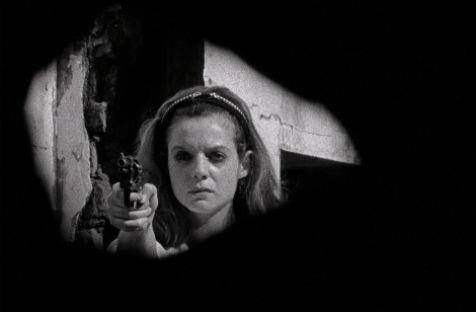Many films are laden with the label of “unique”; few actually earn it. Telling a melancholic yet endearing tale of two distinctively dissimilar parts, Miguel Gomes’ Tabu deserves its descriptor in recognition of its elegant embrace of the inventive and the eccentric; indeed, its ingenuity and artistry received the Alfred Bauer Award for opening new perspectives at the 2012 Berlin Film Festival.
In his third feature after The Face You Deserve and This Dear Month of August, writer/director Gomes is unconcerned with convention or expectation, and unafraid of challenging his audience and the cinematic medium. With co-scribe Mariana Ricardo (The Sword and the Rose), he crafts a gentle but gregarious study of the lingering memories of true love that beguiles in its intrigue, tests in its reflection of restlessness and enchants in its affection, evolving from one to another like a flower in bloom.
A mesmerising prologue of an explorer, a ghost and a crocodile plants the seed for an unusual viewing experience, one which the feature then buries in lamentation. Through the incursion of kindly neighbour Pilar (Teresa Madruga, Blood of My Blood), the film introduces the cantankerous Aurora (Laura Soveral, Disquiet), a grand old dame still rueing the passing of her glory days. Their friendship ebbs and flows with Aurora’s fading health, with African housekeeper Santa (Isabel Muñoz Cardoso, A Morte de Carlos Gardel) her only other companion. Aurora’s past is unknown to both; when it is revealed in nostalgic recollections of a youthful love affair in the foothills of Mount Tabu, her personality – and the movie – blossoms.
Whilst the deadpan observation of the first half may prove a threat to the audience’s patience, its contextualisation by and transition to the dreamlike romance that follows ensures that the feature is as rewarding as it is surprising. The juxtaposition of modern-day Lisbon and colonial Africa affords the film just one of its many immaculate and immersive contrasts; wisdom-fuelled acceptance and naive innocence duel for supremacy, realistic and melodramatic approaches sit in opposition, and the chasm between the ordinary and the exotic is ever-present.
Gomes’ style, too, seethes with the choices of his thematic dichotomy, the black-and-white frames flitting from stark to sumptuous, and his aural compliment changing from sparse conversation and sound design to fluid narration and upbeat pop. He directs his dual cast to the same effect, the austerity and apparent ordinariness of his elder characters at the opposite extreme to the irreverence and energy of younger guises, with Ana Moreira (Quinze Pontos na Alma) magnetic as the irrepressible Aurora of fifty years ago.
The result is expansive in its underlying symbolism, striking in its aesthetics and stunning in its ambition, combining an assortment of original elements to craft an effort unlike any other. Tabu may share its title with F. W. Murnau’s silent offering, as well as the subtitles of its two parts (Paradise and Paradise Lost); however the homage quickly becomes an enigma – the feature itself is a playful, poetic puzzle propelled by its own inimitable merits.
Rating: 4
Tabu
Director: Miguel Gomes
Portugal, 2012, 118 mins
Release date: May 16
Distributor: Palace
Rated: MA
Actors:
Director:
Format:
Country:
Release:





